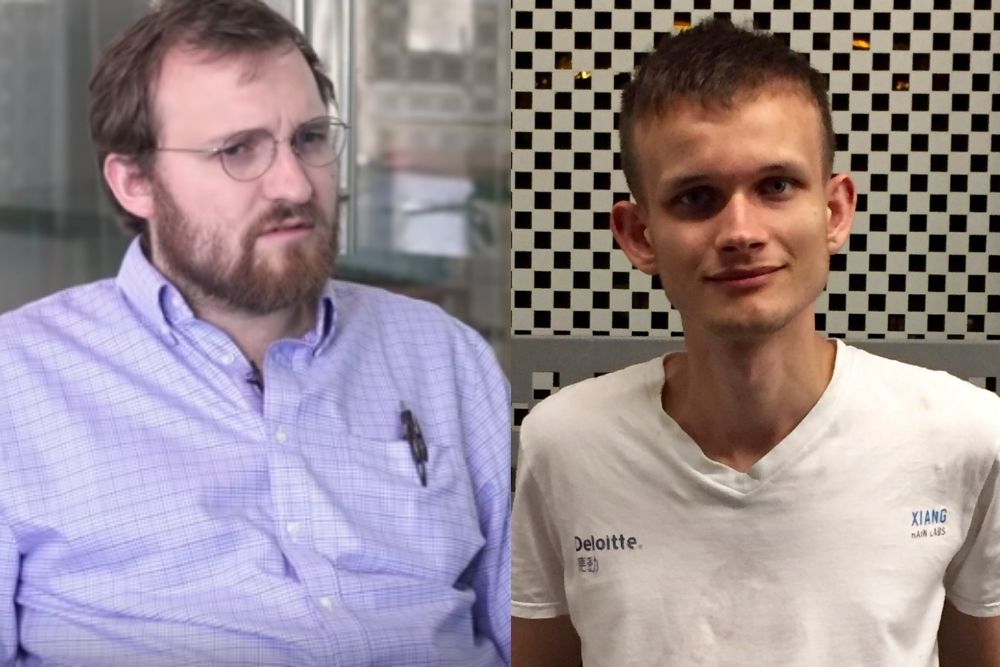

Charles Hoskinson, the creator of Cardano (ADA), has recently berated a Bitcoin developer, Jimmy Song, for criticizing the proof-of-stake (PoS) consensus algorithm. His comment came some hours after Ethereum co-founder Vitalik Buterin condemned the Bitcoin maximalist over the same comment.
About two days ago, Jimmy Song took to Twitter to state that proof-of-stake (PoS), the consensus mechanism that currently powers a number of top blockchain projects, including Cardano (ADA), does not solve the Byzantine General’s problem, making it not a fully decentralized consensus.
We Are On Twitter: Follow Us
Jimmy Song tweeted, “Proof-of-stake does not solve the Byzantine General’s Problem. Therefore, it does not provide decentralized consensus. If you didn’t understand this tweet, then you are completely unqualified to make any claims about proof-of-stake.”
As expected, the tweet was greeted with tons of reactions, especially from crypto big guns such as Vitalik Buterin, Charles Hoskinson, David Schwartz, Adam Back, and others.
Read Also: Charles Hoskinson Wants Elon Musk to Make Cardano His Plan B If His Aim to Acquire Twitter Fails
Reacting to the criticism, Vitalik Buterin said Jimmy Song doesn’t have a strong point to defend his assertion, which probably makes his statement wrong.
Vitalik Buterin tweeted, “Pro-tip: if there’s a long-established tradition of people debating A vs B based on deep arguments touching on math, economics and moral philosophy, and you come along saying “B is dumb because of a one-line technicality involving definitions”, you’re probably wrong.”
Meanwhile, Ethereum is now a few steps to The Merge, which will transition the network from the energy-consuming proof-of-work (PoW) consensus mechanism to proof-of-stake (PoS).
Cardano creator, Charles Hoskinson, also took to Twitter on the 4th of July to label Jimmy’s statement as ‘stupid’.
Hoskinson wrote, “The level of stupid here is beyond explanation.”
Read Also: Vitalik Buterin: I Don’t Expect Crypto to Take Over The World and Replace Traditional Currencies
David Schwartz, CTO at Ripple, who is one of the original architects of the XRP ledger, said PoW, the algorithm that powers Bitcoin (BTC) has no partition tolerance, which implies that it doesn’t also solve the byzantine general’s problem.
“PoW has no partition tolerance, therefore doesn’t solve the byzantine generals problem if network partitions are possible (and they definitely are); therefore it can’t provide decentralized consensus.”
The dilemma of the Byzantine Generals is a significant obstacle for several networks, especially those that are dependent on consensus. The issue arises due to the fact that several players are necessary to reach a consensus in order for a system to function well, yet often none of these actors trusts one another.
However, Bitcoin was the first blockchain to provide a solution to the issue via its implementation of an immutable public record, which reduces the incentive for dishonest individuals to participate in the network.
Follow us on Twitter, Facebook, Telegram, and Google News
The crypto space is heating up fast, and meme coins are fueling the flames! As…
Edward Farina, CEO of Alpha Lions Academy, recently shared a detailed analysis regarding XRP ownership…
Monero (XMR) recorded a 50% price surge, soaring to $317. This price pump was driven…
Ex-Fox Business journalist Eleanor Terrett has provided additional context surrounding the U.S. Securities and Exchange…
As market uncertainty and regulatory tremors continue to shake the crypto industry, concerns about exchange…
In a recent post, Crypto Commentator “All Things XRP” highlighted a significant knowledge gap among…